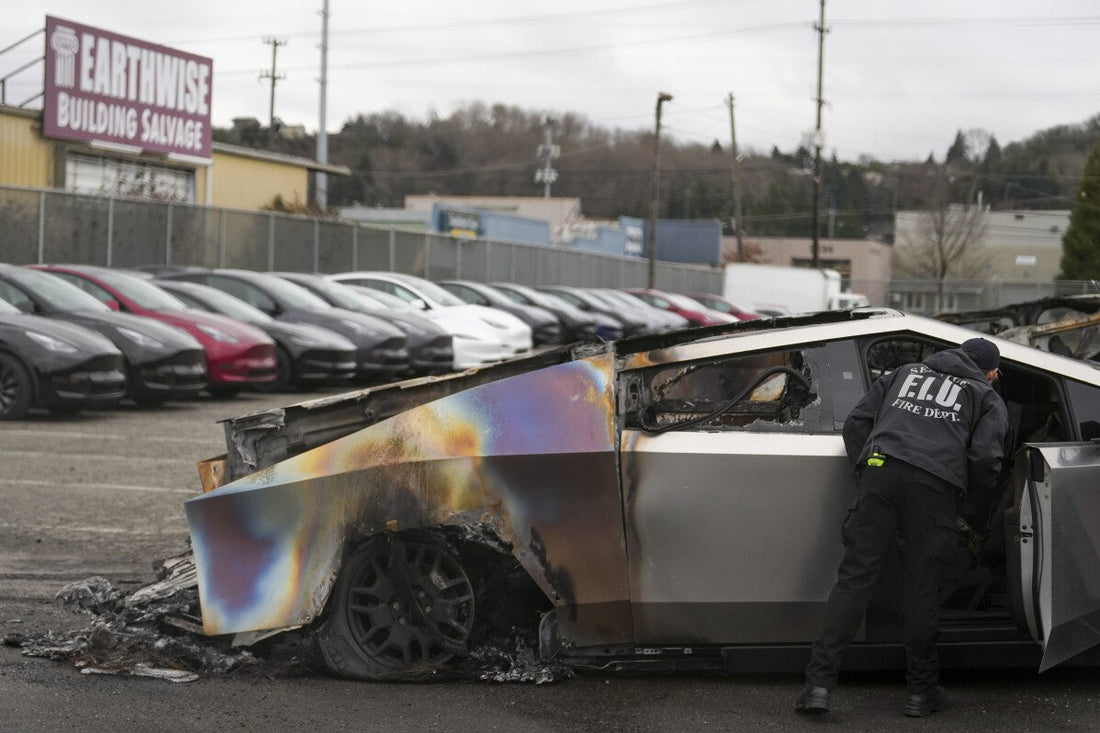
When Anger Crosses the Line: Understanding the Attacks on Tesla and What Comes Next
Over the past few weeks, tensions surrounding Tesla and its CEO Elon Musk have escalated into alarming acts of violence.
From Seattle to Berlin, Tesla dealerships, vehicles, and charging stations have become targets. On March 9, 2025, a Tesla Cybertruck was set on fire in a Seattle parking lot. Days later, a Tesla store in Tigard, Oregon, was hit by gunfire—the second attack there in a week. In Berlin, four Teslas were torched on March 14, and on March 18, incendiary devices were used to destroy vehicles at a Las Vegas repair center. These aren’t just costly property crimes—they’re putting lives at risk and sparking urgent questions about where this anger is coming from.
You Have the Right to Be Heard—But Violence Isn’t the Answer
Let’s be clear: Criticizing corporations or billionaires is fair game. Peaceful protests, petitions, or even boycotts are valid ways to voice concerns. But burning cars, shooting up stores, or tossing Molotov cocktails? That’s crossing a dangerous line. A Colorado woman now faces charges for her alleged role in Tesla attacks, and Berlin police are investigating the arson cases. These acts aren’t activism—they’re crimes. Protest with your voice, not violence.
Musk Fires Back—and Governments Step In
Elon Musk hasn’t stayed quiet. On social media, he slammed the attacks as “mindless destruction of innovation” and urged supporters to “stay focused on the mission.” Meanwhile, U.S. authorities have ramped up security at Tesla locations, with the FBI labeling some incidents as “domestic terrorism”. Germany’s government also vowed to crack down hard, calling the assaults “economic sabotage”.
Is This Really About Elon? The Politics Behind the Attacks
Here’s the uncomfortable truth: This isn’t just about Tesla or Musk. Analysts warn that some conservative groups are exploiting public frustration over Musk’s political ties—like his high-profile role advising the Trump administration—to fuel these attacks. By painting Musk as a “tech oligarch” or a political puppet, they’re simplifying complex issues into a personal vendetta. It’s easier to blame one guy than address systemic problems, right?
To Anyone Thinking of Joining In: Stop. Think. Ask Yourself…
If you’re tempted to grab a spray can or a lighter, pause for a second. Ask: Where is this anger really coming from? Is it your own lived experience, or something you’ve been fed online? In the heat of the moment, destruction might feel like “justice,” but what comes next? Federal charges? A lifetime label as a domestic terrorist? Hurting bystanders?
Hate is like fire—once it spreads, it consumes everything in its path, including your own future. The people egging you on won’t pay your legal fees or visit you in prison. Real change happens at the ballot box, in town halls, and through grassroots movements—not by burning down the present to protest the past.
